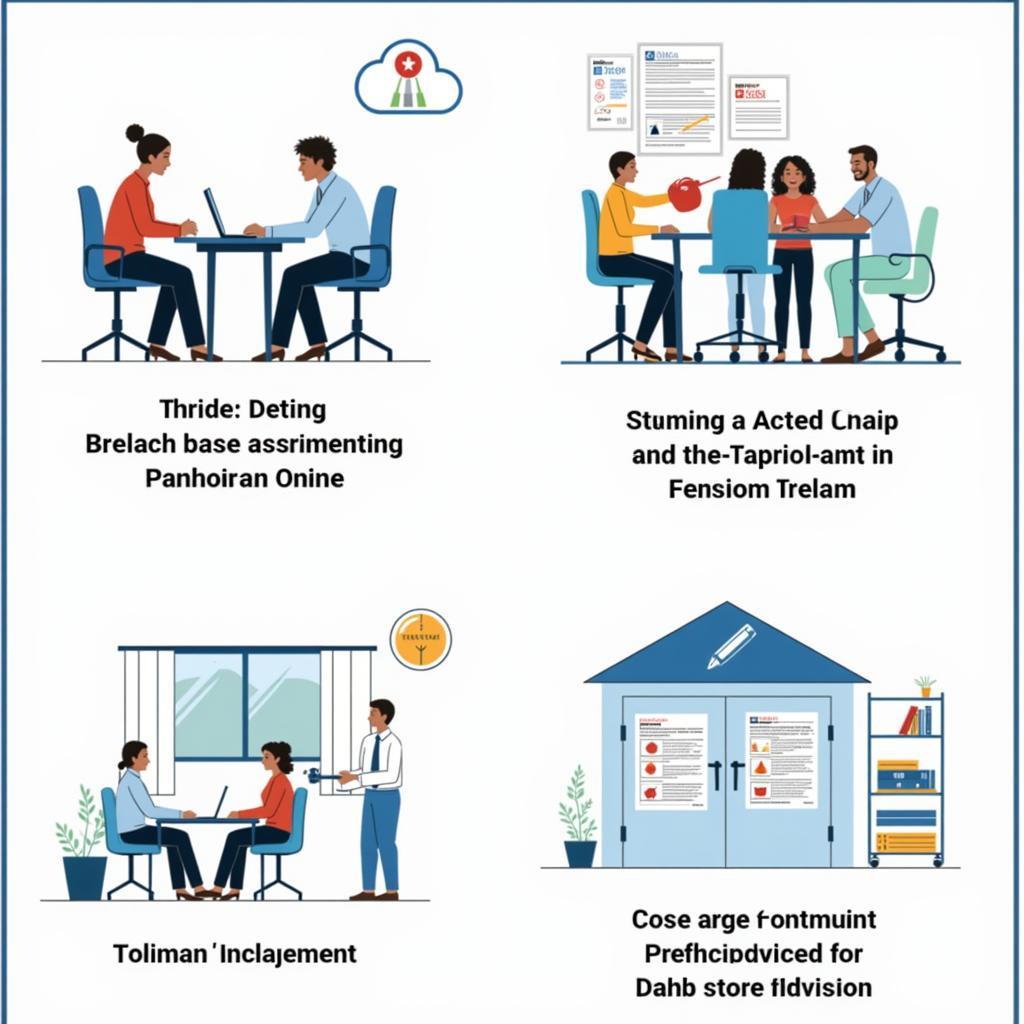Trauma Informed Care Assessment Tools are essential for understanding and addressing the impact of trauma on individuals. These tools help professionals identify trauma-related symptoms, assess the level of trauma exposure, and develop appropriate interventions. This guide will explore the various types of trauma informed care assessment tools, their benefits, and how they contribute to creating trauma-sensitive environments.  Trauma Informed Care Assessment Tools in Practice
Trauma Informed Care Assessment Tools in Practice
Understanding Trauma Informed Care Assessment Tools
Trauma-informed care recognizes the widespread impact of trauma and understands potential paths for recovery. It emphasizes physical, psychological, and emotional safety for both consumers and providers, and helps survivors rebuild a sense of control and empowerment. Assessment tools play a crucial role in this process by providing a structured way to gather information about an individual’s trauma history and its current impact. This information can then be used to develop a personalized treatment plan.
Different Types of Trauma Informed Care Assessment Tools
There is a range of trauma informed care assessment tools available, each designed for a specific purpose. Some common examples include:
- Screening tools: These tools are used to quickly identify individuals who may have experienced trauma and are at risk for developing trauma-related symptoms. Examples are the ACEs questionnaire or the Trauma Screening Questionnaire (TSQ).
- Comprehensive assessment tools: These tools provide a more in-depth understanding of an individual’s trauma history, symptoms, and coping mechanisms. Examples include the Trauma Symptom Checklist for Children (TSCC) or the Trauma Assessment for Adults (TAA).
- Specialized assessment tools: These tools focus on specific populations or types of trauma, such as military personnel, children, or individuals who have experienced sexual assault. For example, the PTSD Checklist for DSM-5 (PCL-5) for military veterans.
trauma informed care assessment tools provide a valuable framework for understanding the impact of trauma.
Benefits of Using Trauma Informed Care Assessment Tools
Utilizing trauma informed care assessment tools offers several benefits for both individuals and organizations. These tools can:
- Improve identification of trauma survivors.
- Enhance understanding of trauma’s impact.
- Facilitate development of targeted treatment plans.
- Increase effectiveness of interventions.
- Promote a trauma-informed culture within organizations.
How to Choose the Right Trauma Informed Care Assessment Tool
Selecting the appropriate assessment tool depends on various factors such as the individual’s age, type of trauma experienced, and the setting in which the assessment is being conducted. samhsa trauma informed care agency self-assessment tool can be a good starting point.
What are the criteria for selecting an assessment tool?
Consider the following when choosing an assessment tool:
- Purpose of the assessment: Are you screening for trauma, conducting a comprehensive assessment, or focusing on a specific type of trauma?
- Target population: Is the tool appropriate for the age and developmental level of the individual?
- Psychometric properties: Has the tool been validated and shown to be reliable and accurate?
- Practical considerations: Is the tool easy to administer, score, and interpret? Is it culturally sensitive?
Dr. Amelia Hernandez, a leading expert in trauma-informed care, emphasizes, “Choosing the right assessment tool is crucial for ensuring accurate and meaningful results. It’s important to consider the individual’s specific needs and context.”
trauma informed care assessment and screening tool offers a range of options for professionals.
Implementing Trauma Informed Care Assessment Tools
Implementing trauma informed care assessment tools requires careful planning and training. Staff should be trained on how to administer, score, and interpret the tools, as well as how to use the results to inform treatment planning. trauma informed care community readiness assessment tool can be used to assess the readiness of a community. It is also essential to ensure that the assessment process is conducted in a safe and supportive environment.
Conclusion
Trauma informed care assessment tools are valuable resources for understanding and addressing the impact of trauma. By using these tools effectively, professionals can improve the lives of individuals affected by trauma and contribute to creating more trauma-sensitive communities. Choosing the right tool and implementing it correctly is essential for achieving positive outcomes. trauma informed care readiness assessment tool can help organizations determine their readiness to implement trauma-informed care.
Need support? Contact us via WhatsApp: +1(641)206-8880, Email: [email protected] or visit us at 910 Cedar Lane, Chicago, IL 60605, USA. Our customer service team is available 24/7.

Leave a Reply